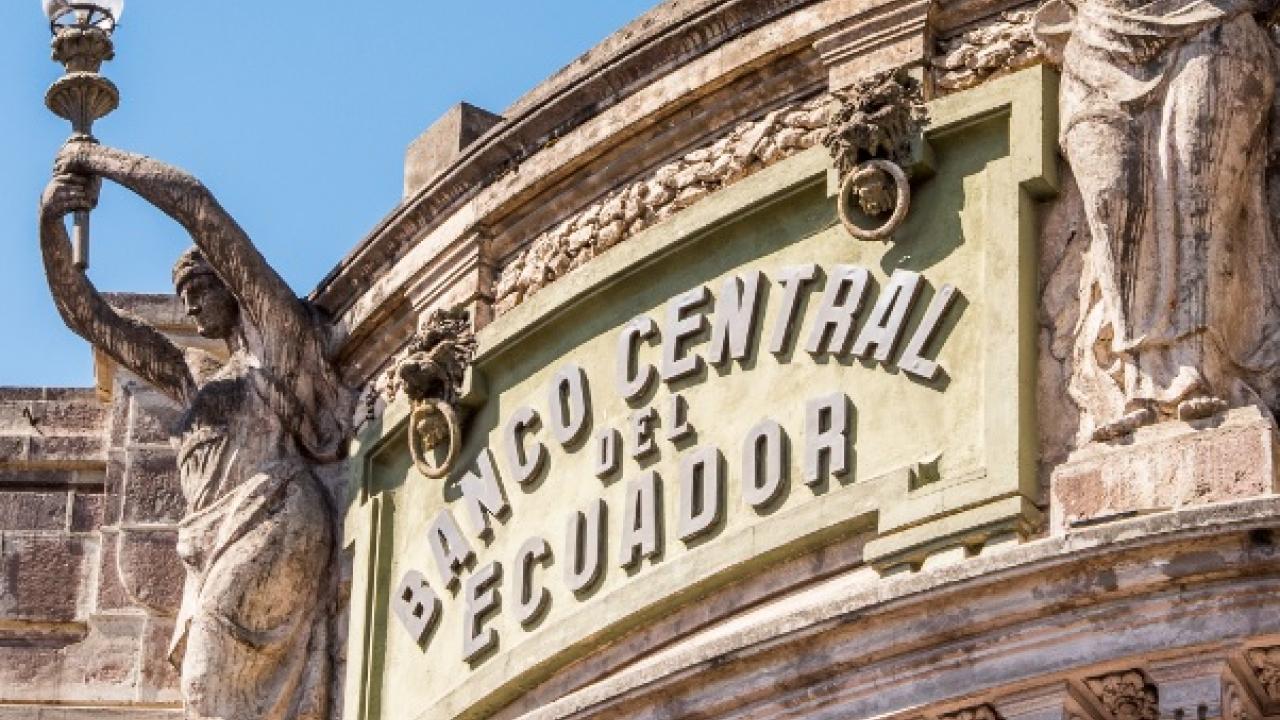
Although some non-oil export sectors are going through difficulties, such as shrimp and bananas, this has been “compensated by the good performance of other non-oil exports such as canned fish and cocoa,” the president explained. of the Ecuadorian Central Bank, Guillermo Avellán.
Starting this month, Ecuador's economy began a “recovery stage” and several factors will contribute to it, despite aspects such as the closure of the ITT through which the State would stop receiving resources, according to the general manager of the Central Bank of the Ecuador (BCE), Guillermo Avellán.
The executive mentioned in an interview with a local television station that there are several factors that have been identified by the Ministry of Economy and Finance and the Central Bank itself that contribute positively in this second semester and "are related to this beginning of the stage of economic recovery." :
Avellán highlighted the external financing in good conditions granted by multilateral banks to the central government, as well as an increase in public investment in priority sectors such as health, education and security, which are contemplated in this second semester as part of the execution of the budget. General of the State.
He also highlighted the reduction in arrears, which allows an increase in deposits in the financial system and therefore an increase or reactivation of credit for household consumption and investment, and a recovery in total exports.
Regarding the closure of the ITT, he said that this is already contemplated in the projection of economic growth of 1% for 2024. He commented that the Central Bank has publicly exposed several investigations related to the impact that the immediate closure of the ITT would have. this oil block.
Regarding the effect of the value added tax (VAT), which although it contributes to fiscal adjustment, but can also stop the economy, Avellán said that they have evaluated the effect that this tax has had, especially on inflation, and it had a temporary increase in April, but then from May and June there has been a decrease in the inflation rate, "therefore it has not been a really negative effect in terms of consumption."
He said that even the inflation forecast that the ECB and the Ministry of Economy had, which was an average of 2.4% and 3.6% at the end of 2024, “will hardly be achieved because until June it has been quite moderate.” , in interannual terms it has grown 1.18%.”
Avellán commented that there may be “exogenous factors that are outside the control of the Government and the private sector” that can affect economic growth, either towards an increase or a decrease, and therefore the ECB has the opportunity to update the forecast. economic growth of 1% by 2024.
The entity is analyzing about 20 industries, such as commerce, construction, accommodation and food services, among others, and considers that weather problems and natural phenomena could affect the agricultural sector and in turn have a negative effect; however, it said “that there is still "There is no clear risk in terms of climate and natural phenomena as announced the previous year."
As another factor, he pointed out the price of oil, which is a commodity that the Government does not control.
Avellán also commented that although some non-oil export sectors are going through difficulties, such as shrimp and bananas, this has been “compensated by the good performance of other non-oil exports such as canned fish and cocoa.” .
He said that non-oil exports until May of this year have grown at a rate of 4.4%, in addition to oil exports also increasing as a result of an increase in the prices of Ecuadorian crude oil internationally. "In fact, total exports are growing at a rate of 11%, imports are contracting as a result of low activity in the first months of this year, which is consistent."
He added that if the difference between exports and imports is seen, a trade balance of goods is reported with a surplus of $3,000 million, which highlights “it is the highest since the beginning of dollarization for the first five months of the year.” (YO)









